Many people and media reports focus on one security aspect of the September 11, 2001 attack in the United States – defensive reactions against acts of terror. Much of this has come to focus on travel but the effects of that single attack have done widespread harm to your security interests over the past 10 years. From vulnerable luggage to a rapid erosion of your digital rights, 9/11 has put continuing pressure on your personal security as a traveler through the air.
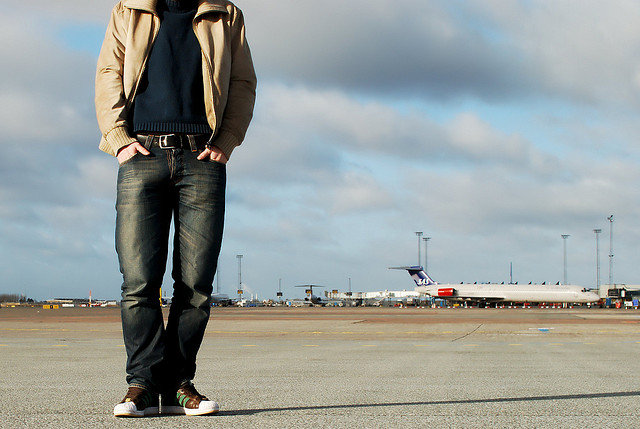
Originally I had this post drafted for the tenth anniversary of the September 11, 2001 attacks later this year; however the killing of Osama bin Ladin has turned a focus on reprisals in the hereafter; rather than look back at the more subtle effects terrorism has had on your travels over the last 10 years.
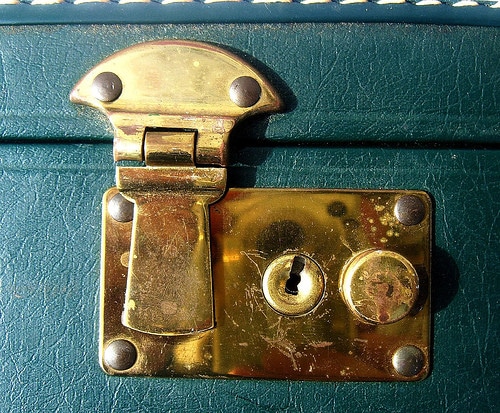 No Locks On Checked Baggage
No Locks On Checked Baggage
It’s a common misconception for travelers within and in between the US that you can’t lock your checked baggage (there are a few TSA-approved luggage locks). As the use of luggage locks has slowly declined the incidents of theft from checked luggage has increased, with complaints filed against both security inspectors and airline baggage handlers.
Though there is a correlation (not necessarily causality) the lack of locks makes it easier for one of the average 11 persons per connection to slip inside of a suitcase to fish around for something valuable.
Security procedures at airports often allow personnel to inspect your baggage (legally) behind closed doors without security cameras in place to monitor what exactly is going on. Of course, if you do experience a theft you should report it to the airline as well as file a claim with any security organizations (e.g. TSA) who may have handled your bags along the way. It’s a bigger problem than most think.
The Loss Of Digital Rights
A few weeks back I showed you how to understand your digital rights as a traveler in the free world and protect your laptop from invasive governments. Since 9/11, many governments around the free world have dismantled your rights to privacy – specifically when it comes to your electronic belongings. Primarily using security as an excuse and by bending legal jargon, your travel photos, company documents, and anything else on a digital device can be searched without reasonable cause. That’s the standard in the US, much of the EU, and Australia…which doesn’t get any better in other countries around the world.
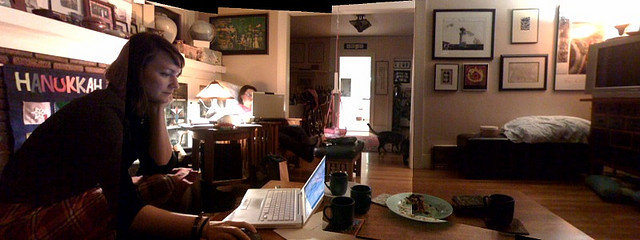
More Money, Nudity, And Time…A Unbalanced Security Trade
S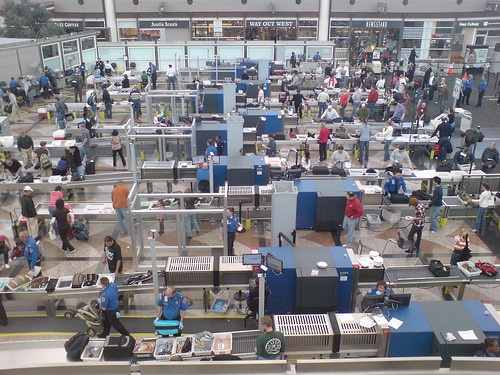 ecurity is a trade off and almost always means adding extra steps to a process, merely to protect you from those who would try to abuse or disrupt a system. The most basic example is locking your front door; a precaution you likely see as reasonable, since it’s a decent deterrent for opportunistic burglary – without forcing you to give up much time or money on a routine basis.
ecurity is a trade off and almost always means adding extra steps to a process, merely to protect you from those who would try to abuse or disrupt a system. The most basic example is locking your front door; a precaution you likely see as reasonable, since it’s a decent deterrent for opportunistic burglary – without forcing you to give up much time or money on a routine basis.
- Full body scanners on the other hand at a cost of $170,000 each, with the alternative being uncomfortable pat downs in the US (or longer lines in Europe); without a full-cost benefit analysis might not be so prudent. The potential for leaked body scans and cost to travelers isn’t giving you much security in return.
Although the promise of virtual strip searches might be powerful, remember that the airport is the last line of defense. Putting together a plot using explosives requires planning, coordination, money, and the complicated process of actually finding the explosives scanners are supposed to find. Within that process is where the overwhelming majority of attacks are thwarted – by good detective work; airport security catches the stupid and the crazy. Besides, conventional X-ray machines are just about as effective detecting guns and other weapons at much less the cost of time or money.
A Mentality Of Fear
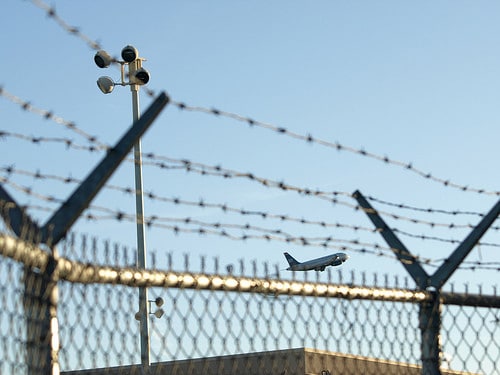 Perhaps the greatest negative effect of 9/11 on your personal security, is the climate of fear under which you travel under. From questioning at the airport to worries about reprisal attacks here and there, many more people travel with fear in the back of their minds – accepting whatever their governments do to (appear) and make them safer. From personal experience I can tell you the effectiveness of security can be measured in countless ways but the aim of terrorism – to incite terror – is much less quantifiable.
Perhaps the greatest negative effect of 9/11 on your personal security, is the climate of fear under which you travel under. From questioning at the airport to worries about reprisal attacks here and there, many more people travel with fear in the back of their minds – accepting whatever their governments do to (appear) and make them safer. From personal experience I can tell you the effectiveness of security can be measured in countless ways but the aim of terrorism – to incite terror – is much less quantifiable.
[photos by: Pragmaraphr (man at airport), Darwin Bell (luggage lock), j l t (women working on laptops), Inha Leex Hale (airport security lines), gTarded (airport barbed wire fence)]












I agree that the greatest effect has been the mentality of fear- it is so sad!
Terrorism is a tactic whose aim is to make people fearful. Unfortunately in that regard over the last 10 years I think they’ve been successful.
As I wander around the globe perpetually I continue to be amazed by how few Americans leave the perceived “safety” of their shores. I never feel unsafe, even though I’m a solo female traveler who spends much of her time in developing countries. The culture of fear that has insidiously invaded our American culture is sad at ultimately damaging to our nation.
The coverage of attacks, disasters, and dangers is so completely disproportionate – especially in the US – that it does nothing but make people scared of the world. More people coming to the US and more Americans traveling is only good for the country and its citizens. Just wish more people saw it like that…
The last time I was in the USA (2010) I used a padlock to lock my backpack. It wasn’t until I arrived at my accommodation that I noticed it was missing. So I now use TSA-approved luggage locks, because the TSA will use bolt cutters if they want to have a look inside your bag.
Most governments retain this right but in the US the TSA-approved locks can at least save you that cost 🙂 …which they will now!
You know the one thing that is missing from it all? Actual improvements to safety and security. If anything, I consider myself less safe flying today than I did in the pre-9/11 world.
That’s the worst part of it all – these measures don’t enhance security. Generally speaking, security is a boring investigation and tracking type process very interesting to observe; guess more visible (but useless) tactics make people feel ‘something’ is being done.
I think Barb said it well, fear is a method to control. I’m not saying real threats don’t exist and the TSA shouldn’t exist, but to what level? It’s become too much, invasive and breeds paranoia.
I use to really enjoy flying, nowadays it stresses me out, so I avoid it like the plague once I reach a continent.
Really good post on the tech side of things, Anil.
I’m convinced that security can work within the freedoms of an open and democratic society. Wish more politicians listened to actual security experts…
Very interesting post. I agree with the above comments about paranoia and creating fear in people.
These days I always travel with carry-on luggage, if anyone wants to search my belongings I want to be close to it or even watch them while they search it.
A good idea, especially when traveling with electronics and other valuables.
Great article, as always, Anil. I now have the attitude that whatever happens, happens. I don’t feel more or less safe anywhere I happen to go, but I still feel the need to keep traveling and connecting to people around the globe. I had a heinous experience at Heathrow last month, all because I completely forgot I had purchased some cologne and it was in my carry on. I neglected to put it in with my liquids. Live and learn, eh? I rarely do a checked bag anymore and do use those TSA approved locks if I do check a bag.
Thank you Marie. It’s unfortunately that much of the security measures in place at airports are there because they look effective, though most security experts would agree they aren’t. I wish logic would trump fear but the human mind has a shortcut when frightened.